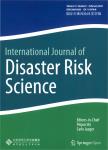A Framework to Assess Possible Sources of Stakeholder Exploitation:A Developing Country Case
作者机构:School of BusinessUniversity of Southern QueenslandSpringfeldQLD 4300Australia Business SchoolUniversity of QueenslandSt LuciaQLD 4072Australia
出 版 物:《International Journal of Disaster Risk Science》 (国际灾害风险科学学报(英文版))
年 卷 期:2024年第15卷第1期
页 面:32-44页
核心收录:
学科分类:0202[经济学-应用经济学] 02[经济学] 083002[工学-环境工程] 0830[工学-环境科学与工程(可授工学、理学、农学学位)] 08[工学] 0708[理学-地球物理学] 0815[工学-水利工程] 0706[理学-大气科学]
主 题:Collective action Pakistan Post-disaster reconstruction-Stakeholder participation Stakeholder exploitation
摘 要:Solving complex post-disaster reconstruction challenges requires the altruistic involvement of heterogeneous stakeholder ***,small,more organized groups,such as government parastatals,private developers,and contractors often exploit large,unorganized groups,such as affected communities,leaving them more vulnerable to future *** on data collected from a case study in Pakistan,this study proposed a framework to assess,anticipate,and mitigate the exploitation of vulnerable stakeholders in post-disaster reconstruction *** framework draws on influential management theories and utilizes reciprocal relationships between stakeholder attributes(power,legitimacy,and urgency),participation,and *** study also argued for non-binary treatment of stakeholder *** framework will allow practitioners to address issues around the exploitation of stakeholder interests in future post-disaster reconstruction projects.



